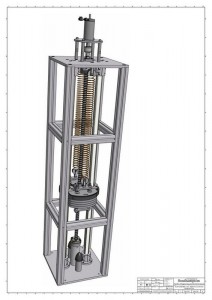By Michele Zilletti
An Engineering Nonlinearity (ENL) Workshop on “Energy Harvesting form Vibration” took place in the Institute of Sound and Vibration Research (ISVR) at the University of Southampton on the 2nd September 2015, co-organized by Dr Michele Zilletti and Prof. Stephen J. Elliott of ISVR. Around 30 attendees drawn from the ENL academic partners, including a strong representation from the University of Southampton itself, participated in the workshop. The invitation was also extended to the partners of the Advanced Training and Research in Energy Efficient Smart Structures (ANTARES) Marie Curie project funded by the European commission under the framework programme 7 in which the ISVR is actively involved with two PhD students.
Prof. Stephen J. Elliott welcomed everyone to the workshop summarizing the agenda of the day and the main topics of the presentations. Prof. Stephen Elliott then handed over to the first speaker, Prof. Steve Beeby of University of Southampton, who gave an excellent overview of “Vibration energy harvesting: practical considerations and applications”, showing clearly some of the successful industrial applications of energy harvesting from ambient vibration he has been working on in the past fifteen years.
Dr Michele Zilletti and Dr Mehdi Hendijanizadeh (ISVR), then gave a presentation titled “Scaling of electro-mechanical transducers for energy harvesting” highlighting the correlation between the size of electromechanical transducers and their efficiency when used as energy harvesters.
A talk on “Nonlinear power harvesting: progress and lessons learnt” followed from Prof Simon Neild (University of Bristol), an ENL investigator, presenting the advantages of nonlinearities in energy harvesters to improve their performance when subjected to tonal excitations.
Dr Elvio Bonisoli, an invited speaker from the Politecnico di Torino, Italy, opened up proceedings after lunch with at talk entitled “Maximum power transfer in nonlinear Energy Harvester for shoes”. He gave a brief overview of industrial applications of energy harvesters in which his research group was involved focusing on the extraction of energy from the human walking aimed to feed a wireless step-counter.
Hadi Madinei (Swansea University) continued on the theme of “Non-linear Dynamics of a Hybrid Piezo-electrostatic Vibrating Energy Harvester” consisting of a bimorph piezoelectric transducer suspended between two electrodes, subjected to a DC voltage.
Dr Jens Twiefel from the Leibniz Universität Hannover, Germany, a partner in the ANTARES project, introduced the topic of energy harvesting from broadband vibration sources. Noha Aboulfotoh, a PhD student within the ANTARES project from the same University, expanded on the theme focussing her talk on “Investigation of Parameters Dependency on Volume Efficiency in Piezoelectric Bimorph Arrays for Broadband Vibration Energy”.
David Hawes then spoke on “Bounds for energy harvesting under random excitation” describing the theoretical upper bounds on the available power for harvesters under random excitations.
Prof. Stephen J. Elliott then led an open discussion on the “future directions of research on energy harvesting” encompassing various aspects such as:
– Linear versus nonlinear energy harvesters
– Type of vibration sources: tonal, broadband and narrowband
– Type of transducers: piezoelectric, electromagnetic, electrostatic etc.
He finally summarized the workshop findings, and drew proceedings to a close by thanking the organizers and everybody for coming.
